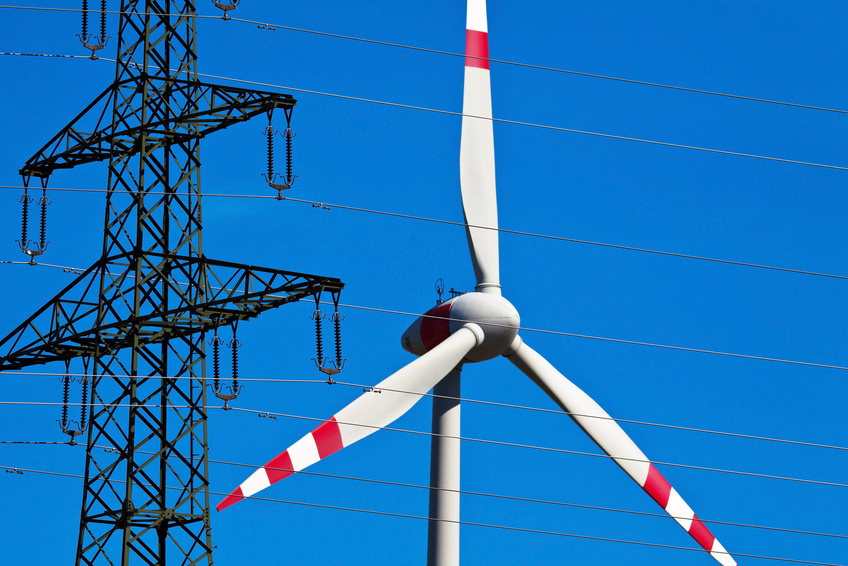
©adobe.stock_Gina_Sanders
The advancing energy transition has also affected labour migration law. A new residence permit was created for employment in the German territorial sea in order to carry out activities for the construction and repair of offshore wind turbines and offshore connecting pipelines, including loading and unloading work in the port and other activities of other members of the crew of the ships used for this purpose.
On 07./08.07.2022 the Bundestag and Bundesrat passed the new § 24b Employment Ordinance (BeschV) to be introduced for this purpose (as Art. 2 of the Second Act to Amend the Wind Energy at Sea Act and Other Regulations, cf. Parliamentary publication BT-Drs 20/1634, 52, 111: https://dserver.bundestag.de/btd/20/016/2001634.pdf). On 29.07.2022 the new regulation entered into force (Federal Law Gazette BGBl. I p. 1325, cf. Art. 12).
In addition to seafarers, this would also cover marine radio operators, marine electronics technicians, medical personnel, engineers, geologists, geophysicists, technicians, fitters, welders, surveyors, explosive ordnance disposal specialists, personnel to control required equipment (such as underwater robots to collect the necessary measurement data) and divers.
Approval requirement does not apply in the case of a time limit of the activity of up to two years
The residence permit, limited to a maximum of 24 months, i.e. two years – if necessary with a prior national visa for entry – is issued in accordance with § 19c para. 1 AufenthG (German Residence Act) in conjunction with the new § 24b BeschV. The limitation to two years was justified by the fact that the construction projects and repairs in the territorial sea, like all construction projects, are not intended to be permanent.
The approval of the Federal Employment Agency (Bundesagentur für Arbeit) is not required for these residence permits, i.e. there is no official examination of whether the foreign workers are employed under less favourable terms than comparable domestic workers (§ 39 Para. 3 No. 1 AufenthG) or whether preferential workers would be available in the German or European labour market (so-called priority check, § 39 Para. 3 No. 3 AufenthG).
The residence permit under § 19c para. 1 AufenthG is granted „irrespective of a qualification as a skilled worker” („Fachkraft“) ; i.e. the qualification of the worker does not need to be in accordance with § 18 para. 3 AufenthG, i.e. equivalent to a German vocational training or comparable to a German university degree. Instead, the company entrusted with the wind farm project shall – in a reasonable manner – decide about the fitness of the worker to fulfil one of the tasks listed in § 24b sentence 1 BeschV. The professional practical experience can be sufficient in this case.
The application of § 9 BeschV has been blocked so that two years of insurable employment pursuant to § 24b BeschV cannot lead to a further residence title which would be again approval-free. Instead, the employment of third-country nationals in the German territorial sea for a longer period of time is to be subject to the other provisions of labour migration law according to §§ 18 et seqq. AufenthG .
Fiction of non-employment for short-term offshore assignments
If, on the other hand, such work assignments in the German territorial sea are only carried out for up to 90 days within a 12-month period, they are subject to the so-called fiction of non-employment pursuant to § 30 No. 2 BeschV. Accordingly, these short-term work assignments are by definition not considered employment within the meaning of the Residence Act (AufenthG) and therefore do not require a residence title that permits such employment.
However, residence as such must still be permitted in these cases. In the case of so-called positive nationals, i.e. persons who are allowed to enter the Schengen area for a short period of up to 90 days within 180 days without a visa in accordance with Article 4 of the EU Visa Regulation, no residence title at all would be required for the work assignment (see also § 17 para. 2 sentence 1 AufenthV, Residence Ordinance).
Since the time limits of the aforementioned non-employment fiction in German law are significantly narrower, up to 90 days within 12 months, than the visa free stay of up to 90 days within 180 days permitted under the EU Visa Regulation, a distinction should be made between periods of employment and other periods of residence. With this distinction, it can be avoided that the short-term workers would have to leave Germany during non-employment periods – such as weekends or vacations – just to comply with the time limit of the non-employment fiction. For compliance reasons and to avoid accusations of abuse, clear contractual regulations and comprehensible documentation of the actual working days are recommended (see the commentary Klaus/Wittmann-Dippe, AufenthV, C.H.BECK, 1st edition 2022, § 17 recital 26 and § 17a recital 7: www.beck-shop.de/klaus-wittmann-aufenthaltsverordnung/product/32107897).
Pressure from recent case law
The new regulations in §§ 24b, 30 No. 2 BeschV simultaneously counter a decision of the Federal Administrative Court of April 2021, according to which crew members on a work assignment on a foreign-flagged offshore supply vessel in the German territorial sea cannot invoke a lack of entry pursuant to § 13 para. 2 AufenthG in conjunction with § 26 para. 1 AufenthV, § 30 No. 4 BeschV, but in principle require a residence title that entitles them to gainful employment (BVerwG, judgement of. 27.4.2021 – 1 C 13/19, para. 43 et seqq.; NVwZ-RR 2021, 952, www.bverwg.de/270421U1C13.19.0).
Andreas Dippe
Rechtsanwalt
Büro Berlin und Dresden
Tel.: +49-30-3087840
Mail: andreas.dippe@derra-b.de

